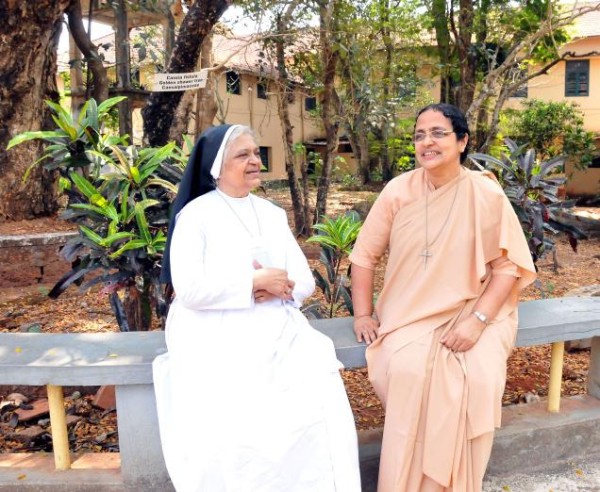The Acorn That Was gives a brief history of Providence Women’s College
The first women’s college in the Malabar had a difficult birth. Adventures were many, so too moments of dejection, but the grace of Providence was strong. In the early 1950s, a group of young women tamed an unruly Florican Hill to start one of the well-known campuses in Kozhikode. The Acorn That Was documents the tale of Providence Women’s College, its beginnings marked by a vision for the future and incessant requests from the people of the city. Written by Sister M. Carmilla, former principal, the book resurrects history through old college magazines, log books and memories.
Published by the college as it turned 60, it is an attempt to treasure history for the future. “We suddenly realised that the college was getting younger and younger,” says Sister Ancilla, the principal. “Only 15 or so of the old lot were still around. We wanted to do something that will show and pass on the spirit of the college.”
The brief history took a year and a half to put together and Ancilla recalls the helpful hands, especially from the Department of History, who played a key role.
Carmilla had watched the institution being born. “I was in class 10 at the Providence High School when the talk of upgrading it into a college was on,” she remembers. A women’s college was a great desire of the parents of the city, she says, as they were sending girls to Madras or Mangalore for higher education.
The author recounts in detail the steering presence of Mother M. Gabrielle, the founder principal. To raise money, Carmilla says, “They went about selling raffle tickets. Gabrielle could transmit her enthusiasm to others. She accepted with equal grace a contribution of 50 paise or a higher amount. Many locked doors were opened because of her.”
The testing times were many, recalls Carmilla, especially when it came to standing security for the endowment of Rs. 5 lakhs. The dream of a college was about to be snuffed out as the management made known its inability to raise the amount. “We have heard that Gabrielle shut herself up in the room and prayed. Finally, the bishop came forward to stand security,” says Carmilla, while the endowment amount was reduced to Rs 50,000.
The college started off finally in 1952 in the Providence High School with 87 students and only the first year pre-university class and with only one group — the Humanities. The space under the staircase became the office.
Carmilla remembers the kindness of many, including the Vice Chancellor of University of Madras, who waived many conditions for the sake of the college. “Gabrielle wasn’t even a post-graduate, but she was allowed to be the principal,” she says.
The hunt for a campus of their own took them ultimately to Florican Hill. “This was just a forest then, but Gabrielle saw its potential.” The almost uninhabitable conditions caused a momentary dip in the student strength, says Carmilla, but the numbers picked up in no time. “Initially, there was no hostel. The girls had to sleep on the floor. But the young girls were ready for any sacrifice.” So when the time came to lay the foundation stone for the hostel in 1955, it was the first ten hostellers who did the task.
Sixty years hence, there are new challenges for Providence, which offers graduate, post-graduate and management courses. “A lot of thinking has to go into our teaching to make it creative,” says Carmilla. If arts suffered when professional courses became the lure, Ancilla says the tide is turning. The future, she says, is in offering courses at the research level. Carmilla, though, remembers the hardships Gabrielle went through to succeed. “She used to say, ‘If you have a sorrow, dig a hole in your heart and hide it there.’”
(The book is not for sale, but those interested can collect a copy from the college.)



Leave a reply